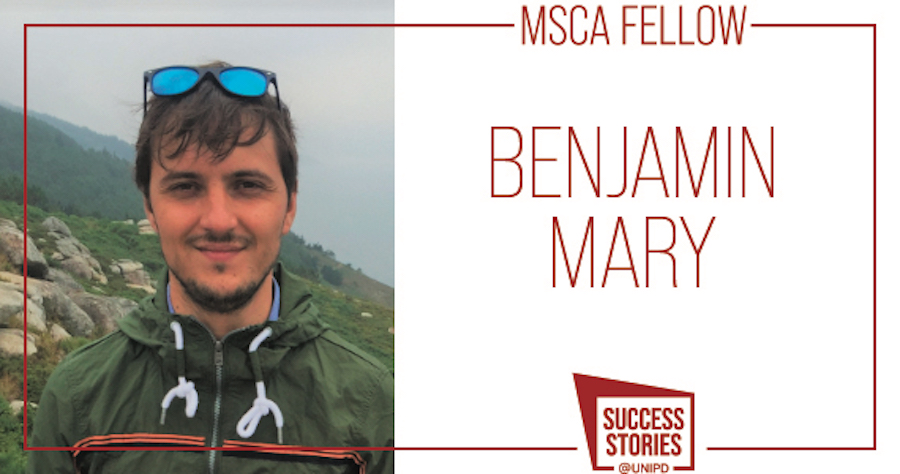
MSCA Fellow: Benjamin Mary
Want to know which connections actually link viticulture, atmospheric data and plant root system?
Let's ask Benjamin, a French researcher and Unipd MSCA - Global Fellow that will move to Berkeley to work on geophysics applied to agronomy, and then will be heading back to Padua.

Benjamin completed his MA in Applied Geophysics (UPMC) and obtained in 2015 his PhD in Environmental Geosciences at Aix-Marseille University.
Under the supervision of Prof. Giorgio Cassiani, Benjamin is currently a post-doctoral researcher at the Department of Geosciences of the University of Padua.
His project GROWING, is dealing with the use of minimally invasive methods for roots monitoring, with the specific aim of improving water use in arboriculture, viticulture and general agronomy. During his MSCA, he will be in charge of the geophysical activities carried out at several field sites all around the Mediterranean area (Italy, France, Tunisia, Morocco) and in California (USA).
Can you explain your project to us? What are the objectives of your research?
I’m Benjamin, I’m a French researcher working on geophysics applied to agronomy for viticulture purposes. My specialty is using geophysical data combined with plant and atmospheric data information to understand plant root system functioning and its key role in the water redistribution between the soil-plant-atmosphere continuum.
Why did you choose to apply for a MSCA-IF? What do you think a MSCA-IF represents in the career of a researcher?
After 2 years of Post-doc, I was in the right stage to apply for an individual fellowship. It was very exciting to forecast a 3-year long project on which I would be, at last, the main contributor. More importantly, if your proposal is granted, it means it has been positively appraised to open doors to your career after the project end.
Why did you choose to apply with University of Padua as Host Institution?
Choosing the University of Padua as my host institution was an obvious choice for me. I had been working here for the past two years on a similar topic. It is always better to know the environment and people locally. I actually applied for a Global fellowship and, after my outgoing phase to Berkeley lab, I will be happy to come back in Italy and transfer my knowledge back to the University.
The University of Padua offers a guidance for each applicant, before, during and after your application. “Individual fellowship” does not mean that you have to handle everything by yourself. The key is listen to people, trust your supervisor, get support and ask questions.
What tips would you share with a researcher who is thinking of applying for a MSCA-IF?
Keep in mind that nothing is granted in advance. I used my first rejection to improve my proposal and that worked for me. Why shouldn’t it work for you?
International Research Office
via Martiri della libertà 8, 35137 Padova, Italy
tel. +39 049.827 1947 / 1948 / 1945
fax +39 049.827 1911
international.research@unipd.it


